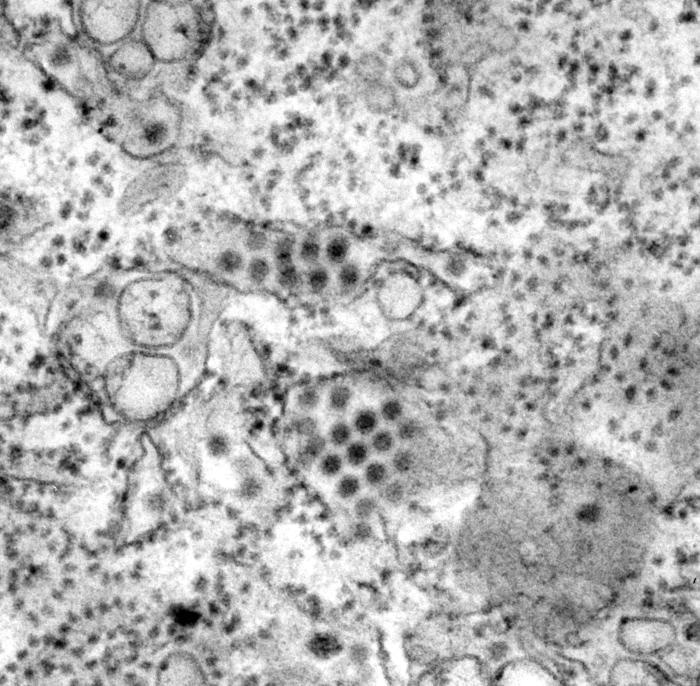Oct 21 2016
 This transmission electron micrograph (TEM) depicts a number of round, Dengue virus particles that were revealed in this tissue specimen. (Credit - CDC/ Frederick Murphy)
This transmission electron micrograph (TEM) depicts a number of round, Dengue virus particles that were revealed in this tissue specimen. (Credit - CDC/ Frederick Murphy)
Annually, dengue fever affects over 350 million people in more than 120 countries. The symptoms can range from a skin rash and achy muscles to critical hemorrhagic fever.
Scientists have found it challenging to develop effective vaccines to fight the dengue virus, partially due to the four distinct serotypes, or strains that cause the disease, as a vaccine will have to immunize against all four independently.
A new type of nanoparticle, illustrated in PLOS Neglected Tropical Diseases, has effectively vaccinated mice against one of the serotypes, and could be developed to target all four.
While trying to use live dengue viruses to prepare a dengue fever vaccine, an imbalance in immunity to the four dengue serotypes had occurred - for example, a recent candidate had lower effectiveness against serotype 2. Earlier infection with one serotype of dengue, or protection against only one serotype, can produce more serious disease if a person catches other serotypes, so it is very important that vaccines are able to specifically tackle all four strains.
To develop a new dengue virus vaccine, Stefan Metz, Shaomin Tian in the laboratories of Aravinda de Silva, Chris Luft and Joe DeSimone at the University of Carolina, Chapel Hill, USA designed nanoparticles of different sizes and shapes using Particle Replication in Non-wetting Template (PRINT) technology.
Each nanoparticle was embedded with copies of DENV2-E protein, an important protein from serotype 2 of the virus. Then, the team immunized 31 mice with a control injection or one of five varying designs of the nanoparticle, each with varying size particles ranging from 55 x 70 nm to 200 x 200 nm.
At the time of the immunizations, as well as four times after two boosters had been administered, the researchers drew blood from the mice to study their immune responses.
Lymph node and bone marrow samples were also taken during different points after immunization.
Post-immunization with the DENV2-E nanoparticles, it was observed that the mice had a definite antibody response to serotype 2 of the dengue virus, but not the other three serotypes. The nanoparticle formulations produced a stronger immune response compared to mice vaccinated with only the soluble DENV2-E proteins.
Although earlier studies of similar nanoparticles have discovered an effect of nanoparticle size and shape on antibody reactions, such a development was not seen at great levels for the DENV2-E vaccine. More studies will have to be done to test whether the antibody levels stop dengue infection as well as whether similar nanoparticles can be created to cover all dengue serotypes.
"Though only focusing on DENV2, these findings form the basis of a safe and efficacious dengue virus candidate," the authors say. "In addition, this platform can be used to develop safe vaccine candidates for other flaviviruses such as Zika virus, where pregnant women are the target group for vaccination."